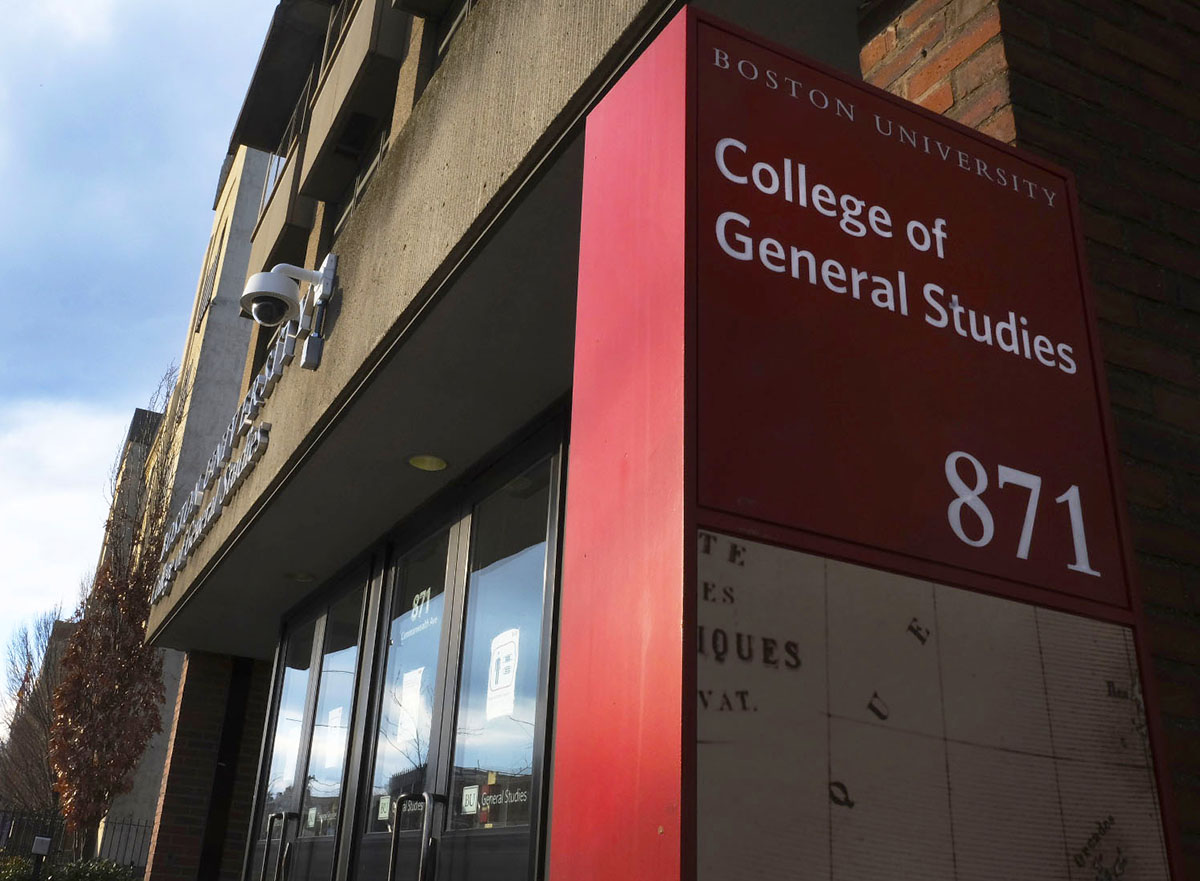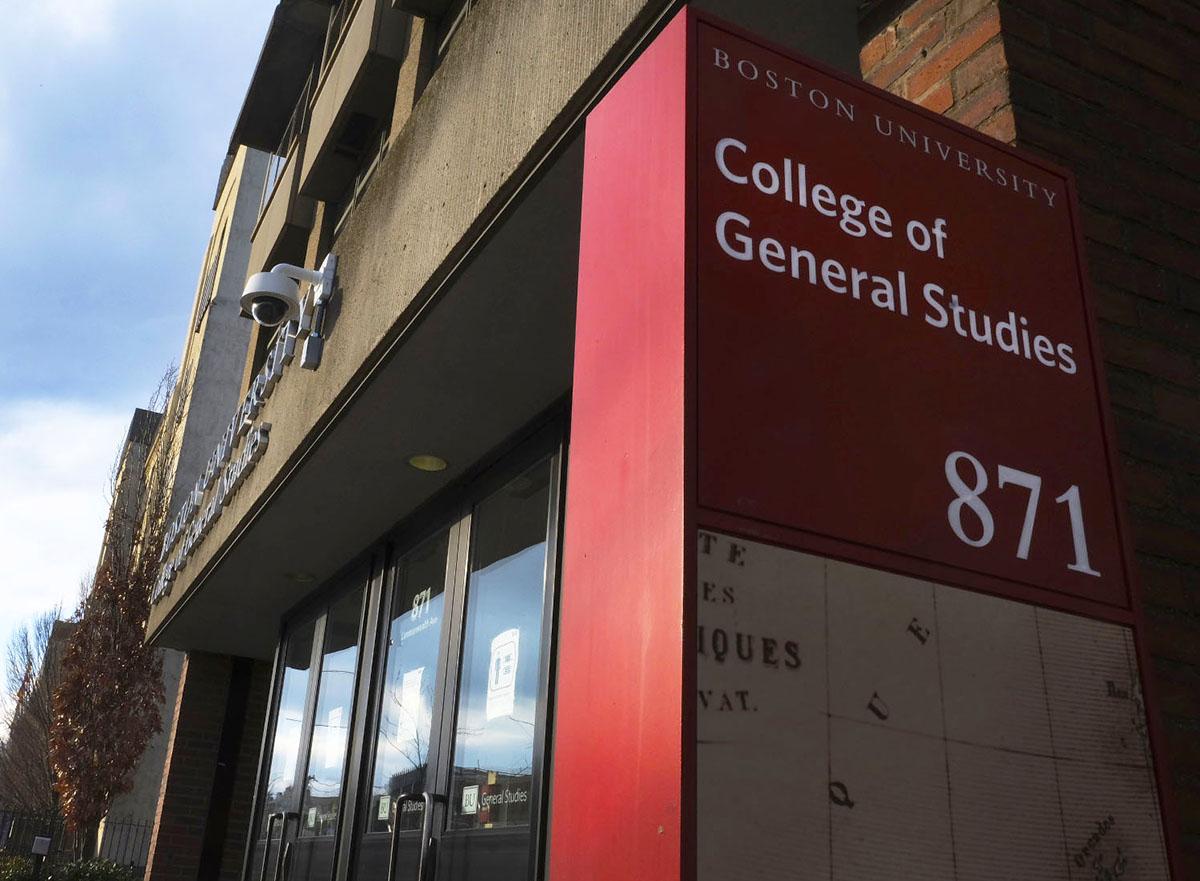Sophomores in the College of General Studies are expressing concern over not being able to vote in the 2024 Student Government elections of their future colleges.
When sophomores in the College of General Studies opened their 2024 Student Government voting ballots, the only options available to them were the Boston University Student Government at large and the CGS freshman ballots.

Cole Nemes is a sophomore in CGS and senator of the CGS Student Government Association. Nemes decided to run to be a senator for the College of Arts and Sciences for next semester. When the ballots opened he was brought to the CGS voting ballot and was unable to see the CAS slate.
“I can run for CAS senator, but I can’t vote for CAS senator,” Nemes said. “I was befuddled.”
Students matriculate into CGS as freshmen and transition out of CGS into a different BU college at the end of their sophomore year. CGS sophomores are required to indicate their transfer plans by February, but they were unable to vote in the elections of the college they were planning on attending, which opened up the last week of March.
CGS students cannot vote in the elections of their prospective colleges because of the university administrative system, according to Ilana Keusch, Student Government chief justice and a senior in CAS.
Keusch said that IT programs show students certain ballots depending on what school they are in in university records. Since CGS students have not matriculated into their new college, they are still only technically enrolled in CGS.
“If you are moving in January, and you have an election in November, you vote in the city that you are currently in for the November election, not the city you are moving to,” Keusch said. “So the same principle applies for CGS.”
Kate Dougherty, a sophomore in CGS and the CGS Student Government president, said that once students graduate from CGS, they have no more affiliation with the school.
“Student Government in CGS really just is not tailored to sophomores,” she said. “It’s more of like a freshmen thing and helping the freshmen, because by the time you’re a sophomore in CGS, you aren’t even taking classes anymore. You’re done and you’re working on capstone.”
According to Dougherty, the 723 students in the CGS class of 2024 were unable to vote in the Student Government elections of their future college. She said that is a violation of the BU Student Government Constitution.
“In Article One Section Two it says that … all degree-seeking students have the ability to vote for people who are going to represent them, and that is not something that happened within the College of General Studies,” Dougherty said.
Dougherty reached out to Natalie McKnight, the dean of CGS, with their concerns. According to Doughtery, McKnight said she planned on bringing up the concerns in meetings with other BU staff.
“My leadership team and I are meeting to discuss how this policy might be changed,” McKnight wrote in an email. “Naturally it will necessitate the approval of other colleges at BU. We are hopeful that the situation can be resolved so that no student is disenfranchised in the elections of their representatives.”
Dougherty said she and the rest of the student government felt “discouraging,” since the inability to vote made many CGS students feel underrepresented.
“We put in a lot of time over the past year trying to make sure that we did have a strong community here that felt integrated into the BU community at large, and then something big like this happens,” Dougherty said. “It’s tough being in power and knowing that a lot of the work that you’ve done didn’t actually pay off.”
According to Dougherty, this voting issue has “apparently been going on for many years.”
Many CGS students feel like “outsiders” within the BU community, because they don’t arrive on campus until their second semester, according to Nemes.
“Everyone just gravitates toward each other because we’re on the same boat,” Nemes said. “ I think within the fact that we’re not able to vote reinforces that idea.”
Despite the longevity of the issue and concerns about voting rights, Keusch understands the university’s decision to not allow CGS students to vote in the elections of their future college.
“I just want to emphasize that this is a concern that I, myself and the rest of the elections commission empathizes with,” Keusch said. “However, given … the host of unknowns about the matriculation status of CGS students, this is currently the system that makes the most sense in an administrative way.”
Nemes believes that the student body of one college’s voting rights shouldn’t be taken away because of a “technicality that is not really enforced.”
“Voting rights are such a simple, basic, right, that not having it is, I think, a major problem within BU,” Nemes said. “I understand the technicalities. I understand the rule and everything, but I think that being able to represent ourselves and our ideas are more important than a technicality.”
























































































































